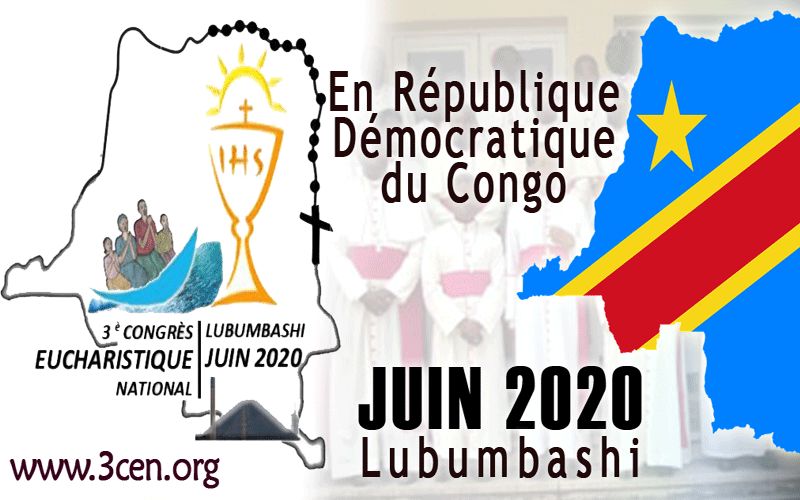Kinshasa, 25 April, 2020 / 3:08 am (ACI Africa).
The third National Eucharistic Congress that had been scheduled to take place in June in the Democratic Republic of Congo (DRC) has been postponed to a later date due to COVID-19 restrictions, the Bishops in the Central African country announced Friday, April 24, calling on the pilgrims not to break the momentum that they had gained over time.
“The coronavirus pandemic which has affected our country, DR Congo, obliges us to postpone the celebration of this congress to a later date,” the Bishops announced in their collective statement as members of the Episcopal Conference of the Democratic Republic of the Congo (CENCO).
“We know that many of us have prepared with faith and joy to live this moment of grace,” the Bishops stated and added, “this postponement must not break the momentum already gained in preparation. We must keep the spiritual dynamic in which we have already engaged until the next celebration of this congress.”
Planned for June 7-14, the Eucharistic Congress, the third in the country, is expected to be held in in Lubumbashi, a southeastern copper-mining town, under the theme, “Eucharist and Family.”
The first Congress was held in Kisantu, in the western part of the country in 1933 followed by the one in the capital, Kinshasa in 1980.








